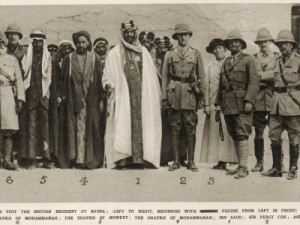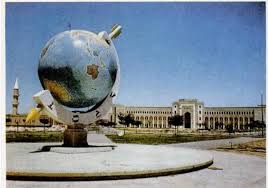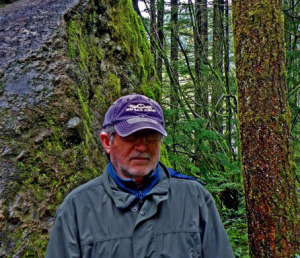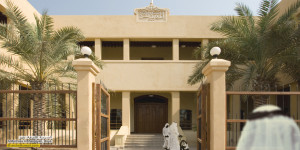

“An intriguing figure is gaining prominence in the Iranian government just as regional conflicts in Iraq and Syria intensify and nuclear talks with the West move toward a Nov. 24 deadline. The newly prominent official is Ali Shamkhani, the head of Iran’s national security council. He played a key role last summer in the ouster of Nouri al-Maliki as Iraq’s prime minister. In interviews over the past few weeks, Iraqi, Iranian, Lebanese, European and U.S. officials have all described Shamkhani as a rising political player…………”
Rear Admiral Ali Shamkhani is not exactly a new hand. He is an old hand within the Iranian regime. He is an ethnic Arab, not a Persian, from the Khuzestan province in southwestern Iran (Ahwaz, etc). He is not a new rising figure as is claimed here, he is an old rising figure in the regime. He served as Defense Minister of Iran during the 1990s. He is now chief of the Supreme National Security Council. I posted on him last year.
(FYI: There are other minority ethnic members in the top Iranian leadership. Iran’s Supreme Leader Ayatollah Ali Khamenei is also non-Persian. He is an Azeri, from Azerbaijan).
Cheers
Mohammed Haider Ghuloum
[email protected]
Monthly Archives: November 2014
Islamist Reform: Joking with the Arabic Language in Yemen……..


Until a few weeks ago the main party or bloc that wielded power in Yemen, actually mostly in Sanaa, was called “Islah”. Islah is dominated by the Yemeni branch of the Muslim Brotherhood, along with some other tribal and Islamist allies. So far so good, but the real joke starts with the word “Islah” which means “reform” in Arabic (when you reform or repair something you are doing Islah: got that?). No reform was seen in Yemen under Islah and its allies. Now the Houthis and allies are also talking reform, no doubt according to their own definition of reform.
In politics and business, poor Yemen is not different from much of the rest of its neighborhood. In the usual Orwellian Arab fashion, reform means corruption, patriotism means acquiescing in repression, unity means tribalism, stability means stagnation. The de facto ruling family of the capital of this Yemen were the Al Ahmar, from one of the largest tribes in Northern Yemen. President Generalisimo Abd Rabu Hadi (a.k.a Al Zombie) was as much a figurehead leader then, a few weeks ago, as he is now under the Houthi militias. Even with his 99.8% of the vote in 2012. (He still beat Egypt’s Generalisimo Field Marshal Al Sisi who could only eke out 97.5% of the vote, still beat the hapless Morsi who had won only about 51% against a Mubarak crony, and he even beat the recent bete noir of the West, Bashar Al Assad and his paltry 88%).
Yemen is like Afghanistan: political matters are inevitably settled (or unsettled) in their own fashion. Foreign intervention, be it Saudi, Iranian, or American can only influence developments, not shape them. Foreign intervention is not decisive beyond the short term. Egyptians learned that costly lesson in the 1960s and the Saudis have learned it again and again in recent years. Ancient Ethiopian and Persian invaders also learned that lesson many centuries ago. The GCC-Western arranged transfer of power in 2012 has apparently failed as much as any other foreign intervention. It was never taken much seriously, and now it is dead even in Sanaa.
Yemen, the alleged source and genesis of the original Arabian tribes is largely ignored and shunned by its closest Arab neighbors. The Saudis, in a moment of royal madness, briefly invited faraway Morocco and Jordan to join the GCC in 2011. But not Yemen. Yemen is best left alone by outsiders.
Cheers
Mohammed Haider Ghuloum
Middle East Love-Hate: Iran and America, Islamic Republic Blues………..
“One of the reasons this episode is deeply confusing might be because the “vibe” in Iran, the general feeling of walking down the streets, through the markets, the way we were received everywhere by total strangers and passersby, was overwhelmingly friendly. I have said that Iran is the most outgoingly warm, “pro-American” place we’ve ever shot—and that’s true: in Tehran, in spite of the fact that you are standing in front of a giant, snarling mural that reads “DEATH TO AMERICA!”, you will, we found, usually be treated better by strangers—meaning smiles, offers of assistance, curious attempts to engage in limited English, greetings and expressions of general good will—than anywhere in Western Europe, It would be hard to imagine strangers in Germany or France or England, on recognizing you as American, giving you a thumbs-up and a smile simply for your nationality. That was overwhelmingly the case in Iran…………”
This is a love-hate relationship: more love on the popular level, more hate on the political level. I have seen it in the Middle East and even among some Iranians in America. Many Iranians dislike American foreign policies in the region. They especially hate the unilateral economic blockade that they correctly believe Israeli leaders and their American political allies have pressured and browbeat Mr. Obama into imposing on their country.
Many mullahs and hardliners also naturally suspect and fear an opening to America. After all, they see how China has changed under Chairman Mao’s heirs so that it is now a “people’s republic” and “communist” only in name. Can the “Islamic Republic” be far behind? Probably not: many people in Iranian cities hope so. It is already changing profoundly from the inside.
Iran still probably has the most pro-American people in the whole Middle East. Many Iranians have relations, family ties, among the huge Iranian-American diaspora. They are also a relatively young population reacting to an orthodoxy their government has tried to impose on them, with waning success. They welcome mainstream American journalists who often visit, then go back home and declare their undying support for the economic blockade. (No surprise there: few if any would dare declaring against the sanctions and keep their jobs with the New York Times or Washington Post). Talking on a popular level, not on a government level: most mullahs and Revolutionary Guards are hardly pro-anything American and the U.S. Knesset Congress is violently anti-Iranian.
It is different from the Israelis that media propaganda here routinely picture as the most pro-American. Maybe they mean some shared ‘Western’ political and social values, and in many cases shared citizenship. Maybe the Mossad and the CIA and the military have some close cooperation, maybe, but that is government. The Israeli ties also reflect a degree of dependence, what many Muslims see as a one-way street that is often shaped by domestic American politics.
Nor do many others in the region feel friendly toward American policies. After all, the biggest attacks on the American homeland were planned and executed mainly by terrorists from two major allied Middle East countries. No doubt more are being planned and thwarted even now.
Cheers
Mohammed Haider Ghuloum



